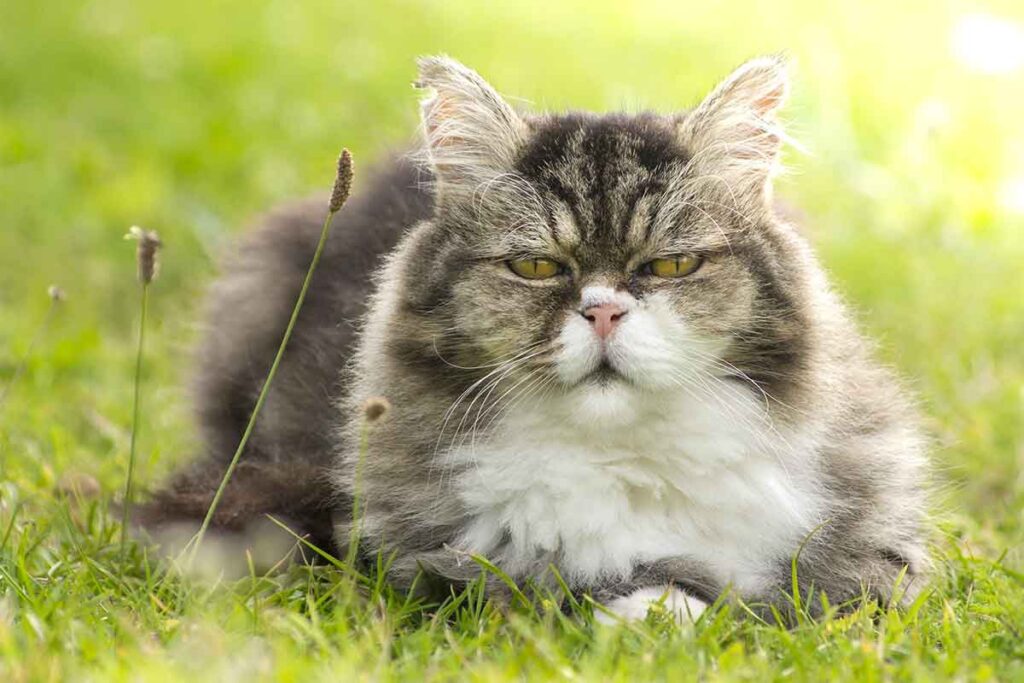As our feline companions age, they require special attention and care to ensure their health and happiness. Senior cats bring immeasurable joy and a lifetime of cherished memories, and it’s our responsibility as pet owners to provide them with the love, care, and support they need during their golden years.
In this blog post, we’ll explore essential tips and guidelines for loving and caring for a senior cat, helping them thrive and enjoy a comfortable life filled with love and companionship.
- Regular Veterinary Care: As cats age, their bodies become more susceptible to certain health issues. It’s crucial to schedule regular visits to the veterinarian to monitor your senior cat’s overall health and address any potential concerns. Regular check-ups, vaccinations, and screenings can help detect age-related conditions early, ensuring prompt treatment and improved quality of life.
- Nutrition and Hydration: Providing a well-balanced diet tailored to your senior cat’s needs is essential. Speak to your veterinarian about appropriate dietary changes, as older cats may require specialized senior cat food to maintain a healthy weight and support aging joints. Adequate hydration is also crucial, as aging cats are more prone to dehydration. Ensure fresh water is readily available and consider incorporating wet food into their diet to increase their moisture intake.
- Comfortable Living Environment: Create a safe and comfortable living space for your senior cat by considering their mobility and comfort. Provide them with a warm and cozy bed, away from drafts and noise. Consider using ramps or steps to help them reach higher places and make sure litter boxes are easily accessible. Additionally, keep food and water bowls at a comfortable height to prevent strain on their joints and neck.
- Mental and Physical Stimulation: Engaging your senior cat in mental and physical activities can help keep their mind sharp and their body active. Provide interactive toys, scratching posts, and puzzle feeders to stimulate their senses. Spend quality time playing and cuddling with them, as senior cats still crave companionship and social interaction.
- Dental Care: Oral health is vital for cats of all ages, but it becomes even more crucial as they grow older. Poor dental hygiene can lead to a variety of health problems, including gum disease and tooth loss. Regularly brush your senior cat’s teeth using a feline-specific toothbrush and toothpaste recommended by your vet. Dental treats and toys designed to promote oral health can also be beneficial additions to their routine.
- Pain Management: Arthritis and other age-related conditions can cause discomfort and pain in senior cats. Watch for signs of stiffness, limping, or reluctance to engage in regular activities. Consult your veterinarian if you suspect your cat is experiencing pain, as they can recommend appropriate pain management strategies, such as medication or supplements, to improve their quality of life.
- Love, Attention, and Adaptations: Above all, senior cats thrive on love, attention, and a sense of security. Offer them plenty of affection, gentle strokes, and a calm environment. Monitor their behavior closely and adapt to their changing needs, whether it’s providing a litter box with lower sides, creating easily accessible resting spots, or adjusting their playtime routine. Adapting your home and routines to accommodate their aging process will ensure their continued comfort and happiness.
Loving and Caring for a Senior Cat
Caring for a senior cat requires patience, understanding, and a commitment to their overall wellbeing. By providing regular veterinary care, a balanced diet, a comfortable living environment, mental and physical stimulation, proper dental care, pain management, and lots of love and attention, you can help your senior cat enjoy their golden years to the fullest.
Cherish the bond you share with your feline companion and make their twilight years filled with comfort, happiness, and a deep sense of love and belonging.

